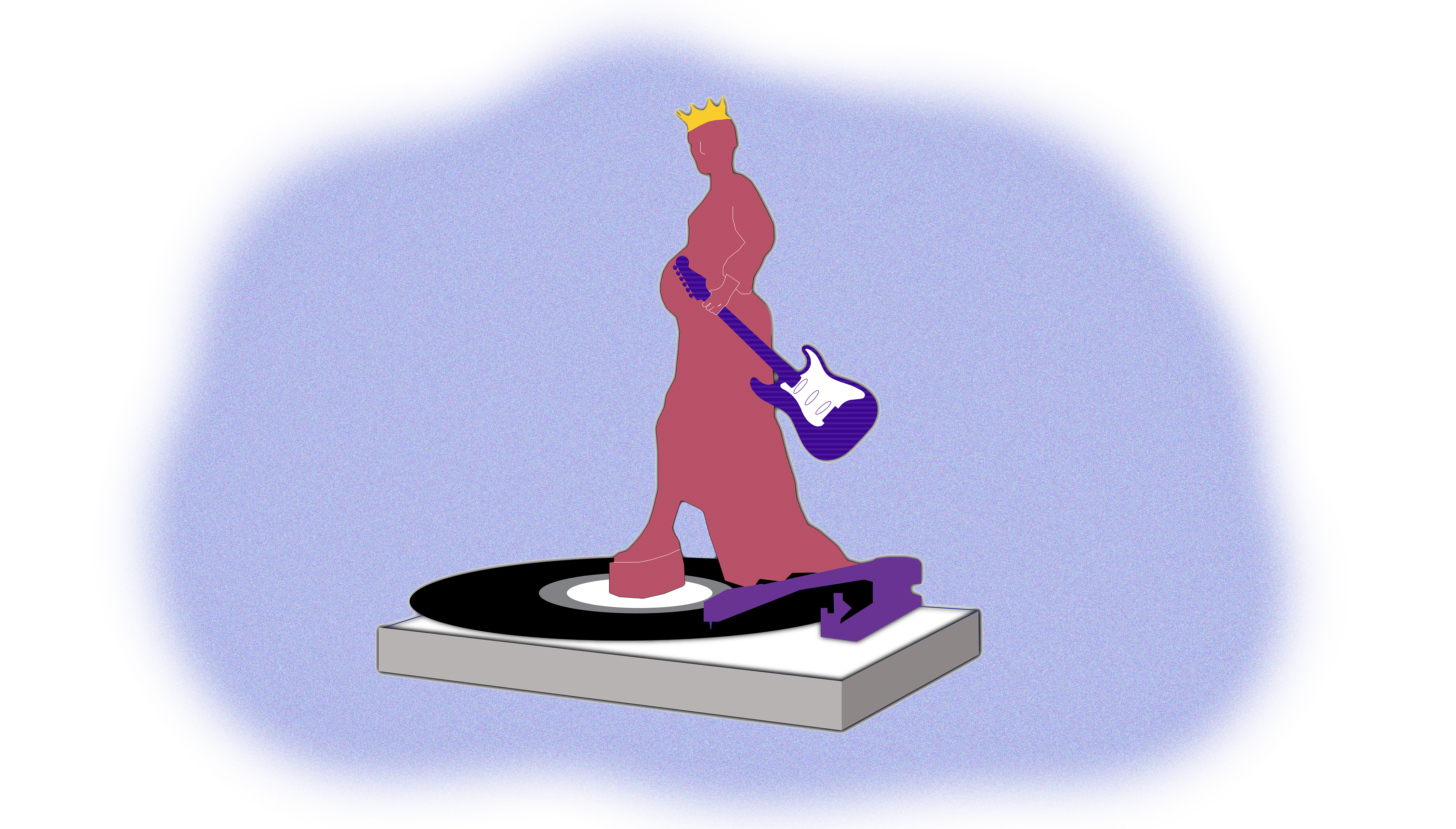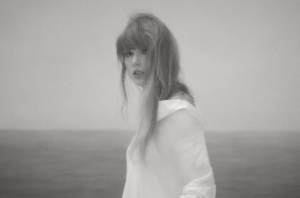When Halsey first announced that their fourth studio album would be about pregnancy, she faced intense fan resistance. In an Internet age where teenagers and young adults are a cornerstone of the consumer base, and sex appeal and edginess sells, motherhood and pregnancy might be considered alienating to young audience and, well, unsexy.
“What ended up happening with a lot of my fans’ first reaction was, ‘Is she going to get boring now?’ They were like, ‘there’s going to be nothing for me here,’” Halsey told Billboard.
But If I Can’t Have Love, I Want Power’s (2021) grunge-pop-meets-alternative-rock presents the album’s intentful narrative in a manner that is far from boring. With an extended version of the record dropping in early January, Halsey deserves everyone’s attention. However, the album has garnered comparatively muted commercial success despite its addictively unapologetic singles “I am not a woman, I’m a god” and “You asked for this,” as well as an accompanying promotional film released on HBO Max.
Direct and compelling, the album’s title—perhaps an allusion to Machiavelli—sets the tone for a concept album that takes on womanhood unblinkingly, cycling through nuances of femininity and exploring miscarriage’s biting grief. Abstract feminist concepts become concretized. The aptly named opening song, “The Tradition,” explores how traditional understandings of gender expectations play a direct role in establishing institutionalized and internalized misogyny.
“And they said that boys were boys, but they were wrong / Take what you want, take what you can / Take what you please, don’t give a damn / Ask for forgiveness, never permission,” Halsey chants in the chorus, describing how societal gender expectations create misogynistic environments, excuse immoral male behavior, and require women to be excessively understanding and forgiving.
Halsey deconstructs pregnancy with a refreshing take on postpartum sexuality, as the album as a whole revolves around the dichotomy of the Madonna-whore complex. In a now-deleted Instagram post, Halsey described how they wanted to focus on “the idea that me as a sexual being and my body as a vessel and gift to my child are two concepts that can co-exist peacefully and powerfully.”
“My body has belonged to the world in many different ways the past few years, and this image is my means of reclaiming my autonomy and establishing my pride and strength as a life force,” they wrote.
In the lead single “I am not a woman, I’m a god,” Halsey chants their empowered identity: “I am not a woman, I’m a god / I am not a martyr, I’m a problem / I am not a legend, I’m a fraud.” By reappropriating terms historically ascribed to “problematic” and significant women like Joan of Arc and Cleopatra, Halsey critiques how women are often reduced into one of two categories: the pure, virginal Madonna and the sexually-corrupted whore. Halsey seeks to resolve the excessive categorization of women by juxtaposing adjectives that are typically used to discredit women with those that celebrate women instead.
Halsey departs from her trademark arena-pop sound for a heavier, electronic-rock sound that may seem ironic and unconventional for an album dealing with pregnancy. The album’s sound is largely owed to the album’s producers, Nine Inch Nails’ Trent Reznor and Atticus Ross. Though Nine Inch Nails is associated with a metal and industrial rock sound, the pair is also known for scoring films like The Social Network (2010), The Girl with the Dragon Tattoo (2011), and Gone Girl (2014) with an ambient sound—that is, gentle electronic instrumental music with no distinctive beat. However, they manage to create tension with their ambient scores, a skill that lends itself well to If I Can’t Have Love, I Want Power’s slower tracks.
Although Halsey was not credited in producing the album, she remained in control of the overarching story and vision throughout the album’s production process. Halsey departed from normal collaborative conventions for songwriting and wrote all of the album’s lyrics before asking Reznor and Ross to produce the album.
The product? An album where each track’s sound has taken the lyrical themes in mind during its production, making for an especially personal and audibly authentic listening experience. “You asked for this” features rattling drums and muted guitar riffs that aptly accompanies the track’s focus on female self-blaming. “Go on and be a big girl / You asked for this now / You better show ’em why you talk so loud,” Halsey sarcastically jests as muted guitar riffs grow in intensity, describing how women often blame themselves when facing opposition in misogynistic environments. The album’s musical production adds an abrasive quality to Halsey’s pointed lyricism, elevating her carefully-chosen words from merely insightful turns of phrase to an intricate feminist narrative that traverses the entire album.
The album’s by-far most captivating song, “Bells in Santa Fe,” is filled with loaded one-liners and stands apart in the way it creates intensity with a relatively slow tempo. A contemplative beat is layered with electronic blips that grow in volume as Halsey croons, “Don’t call me by my name / All of this is temporary / Watch as I slip away for your sake.” Halsey revealed that these lines are a reference to the Miyazaki film Spirited Away. In the film, the main character Chihiro has her name stolen by a witch. The loss of her own name leads her to lose her identity and connection to the living world. Halsey, similarly, fears that their stage name, an anagram of their real name, Ashley, and the fame associated with it will overshadow their sense of self.
“I’ve always related to Chihiro,” Halsey wrote in a Tweet. “If I ‘forget my real name,’ I’ll lose myself to an unfamiliar world as well.”
In the song, Halsey also describes their stage name and fame as “temporary,” implying that they cannot retain their fame forever—mainly due to unreasonable societal expectations where artists must continuously reinvent themselves with each comeback to be flashier, shinier, and sexier. As a result, she feels the need to “slip away” from the confines of public stardom not only to preserve her sense of self, but to escape “for [the public’s] sake,” before she is deemed irrelevant and boring.
Of course, in true Halsey fashion, these lyrics could hold dual meanings. Perhaps because she must repress her true self to be the public figure her audience wants her to be, Halsey feels herself beginning to “slip away” and lose herself to an unfamiliar world. “Bells in Santa Fe” best showcases this album’s cutting lyricism with the killer line, “I could keep your bed warm, otherwise, I’m useless / I don’t really mean it ’cause who the fuck would choose this?” Here, Halsey demonstrates her trademark ability to use colloquial words to establish subtlety. While commenting on how women are regularly perceived as useful solely to satisfy male pleasure, she sarcastically implies that she is joking to not offend those who believe that gender inequality is no longer relevant. However, she then counters the very idea of a post-feminist world by bringing up a legitimate question: Who would choose to be viewed in the way women often are? Who would choose degradation and objectification?
As “Bells in Santa Fe” builds with distorted guitar riffs and a haunting repetition of “All of this is temporary,”’ it seamlessly flows into the album’s next track, “Easier Than Lying.” More sonically abrasive than its sister track, “Easier Than Lying” fills the ear with exclamatory lyrics that are heightened by a fast tempo, prominent distorted guitar riffs, and shouted vocals. “You liar, you don’t love me too / It’s easy for you after all,” Halsey spits, calling out her lover for claiming to care about her while still mistreating them. This, too, is gendered commentary: “it’s easy” for her lover to mistreat her and escape criticism because the expectations for male behavior are set so low. This song is a surefire headbanger, complete with jarringly insightful lyrics that create a sense of cathartic chaos.
Although If I Can’t Have Love, I Want Power’s standard version conveys a nuanced narrative, the extended album’s three bonus songs successfully wrap up its themes. The second of these additional tracks, Reznor and Ross’ rework of “Nightmare,” is a more menacing take on the original song that was released in 2019. The track does a great job of bringing together Halsey’s past arena-pop lyricism with her present grunge-pop sound. “I keep a record of the wreckage in my life / I gotta recognize the weapon in my mind / They talk shit, but I love it every time,” Halsey sings, describing how they use songwriting as a way to rise above the hate they have received in the public eye by writing cathartic songs. The extended version’s final track, “People Disappear Here,” cycles back to themes explored at the beginning of the album. “Way down the dark alleyway / Somewhere in the Garden State / The girl from California waits / She has my name but not my face,” Halsey laments, warning her audience about how fame led to losing her sense of self.
Contrary to her (problematic) fans’ fear that a concept album about pregnancy would be inaccessible and boring, Halsey’s nuanced songwriting does not alienate the part of her audience that has not experienced pregnancy. Instead of focusing on the singular experience in and of itself, she lets us view pregnancy as something experienced more widely through lenses of sexuality, gender relations, and the feelings of fear, insecurity, and pain. “I wasn’t trying to make a record that was drowning in its own profundity. I was kind of just writing about how I feel,” Halsey said in an Apple Music interview. Her skillful use of phrases that have double-meanings allows fans to interpret their lyrics in an infinite number of ways, rendering the album widely relatable, especially for women today.
However, Halsey has made it clear that If I Can’t Have Love, I Want Power is not a “girl power” album. In the Apple Music interview, they talk about how the album might traverse themes of pregnancy and new motherhood, but that their own journey does not align with the hyper-feminine societal conception of it. “Nobody talks about the pain, the blood, the disease, the fear, the fact that it is arguably the most dangerous condition a human body can experience,” she said. “It’s framed as this time where you should be so grateful—me especially, because of my struggles with reproductive health. But the reason that the album has this horror theme is because this experience has its horrors. I mean, I have nightmares about waking up in my own pool of blood.” Halsey’s fear of miscarriage is especially prevalent in “1121,” a song they wrote the day they found out they were pregnant. “Please don’t leave (I’m runnin’ out of time to tell you) / Don’t leave me in the shape you left me (I’m runnin’ out of things that I regret),” she sings, begging her baby to remain healthy throughout her pregnancy.
But perhaps creating the album itself was a powerful move. “I think it probably can be experienced in that way, for some people, because the fact that I made it at all and the way that I made it is kind of like a girl power statement,” she conceded. Now more than ever, we need artists like Halsey to deconstruct hyper-glorified experiences like pregnancy and fame and discuss the nuanced nature of such experiences in terms of both joy and horror—both love and power.





